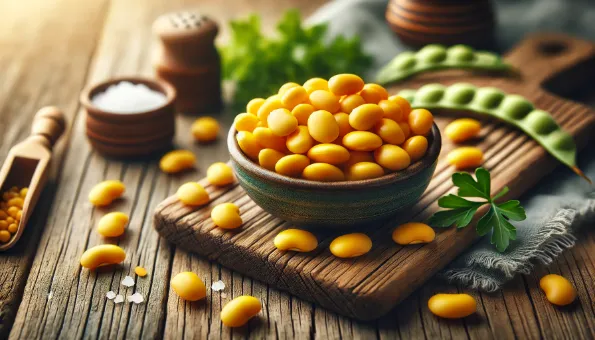Lupini Beans: High-Protein Mediterranean Snack
Large, flat beans with a firm bite—rich in protein, fiber and tradition, enjoyed pickled as a bar snack.

What Are Lupini Beans?
Lupini beans are the edible seeds of the **lupine plant** (*Lupinus spp.*). They are traditionally soaked and brined to remove natural alkaloids (which are bitter). Popular in Italy, Portugal, Spain and the Middle East, they’re eaten as a **snack** or added to salads.
Nutrition Profile
Per 100 g cooked (in brine): **~120 kcal**, **~10–12 g protein**, **~3–4 g fiber**, **~9–10 g carbs**, very low fat, good amounts of **magnesium**, **manganese**, **iron** and **folate**.
Health Benefits
- **Plant protein:** Great option for vegans and vegetarians.
- **Rich in fiber:** Promotes satiety and gut health.
- **Mineral-rich:** Iron, magnesium and folate support blood and muscle function.
- **Low glycemic index:** Suitable for balanced blood sugar.
Possible Downsides
- **Must be properly soaked/brined** to remove alkaloids; raw beans are bitter and not safe.
- **High sodium** if eaten from brine—rinse before serving.
- Some people may experience **gas or bloating** from legumes.
How to Use
- **Snack:** Eat chilled from the brine after rinsing.
- **Salads:** Add to mixed vegetable or grain salads.
- **Mash or blend:** Use as a base for plant-based spreads.
- **Fermented products:** Lupini flour is used in gluten-free baking.
Tip
If buying dried lupini, plan ahead: **soak 24–48 h**, changing water often, then cook until tender and soak in brine several days until no bitterness remains.
- 1. Lupini Beans
Lupini grah – velike, plosnate sjemenke lupine, namakane i kuhana da se ukloni gorčina; često se jedu kao snack u mediteranskim zemljama

